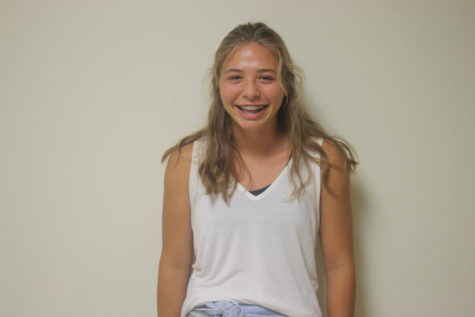Forensic science offered to juniors, seniors
February 28, 2020
A new Forensic Science class will be offered to juniors and seniors starting next year. Forensic Science is more commonly referred to as criminalistics. Forensics brings together the techniques and the science that law enforcement and crime scene investigators use to recreate crime scenes based on real-world events, Serena Lerma, who is interested in teaching the new class, said.
“This course is designed to familiarize those individuals interested in criminalistics and related fields with the methods and techniques currently employed by forensic scientists,” Director of Curriculum and Instruction Scott Eggerding said.
With a few prerequisites, including one year of biology and one year of chemistry, this class is made for students looking for a highly engaging science course, Eggerding said.
“I think that if taught right, this class would be really fun,” Lizze Scotty ‘19 said. “I was unbelievably stressed out the entirety of my junior and senior years at LT and I would have loved to have this class to look forward to every day.”
Laura Klusendorf ’21 is enrolled in Forensic Science for her senior year. She has always had an interest in the topic and wanted to take this class at some point in her life, she said.
“I knew that I wanted to take this course and I also didn’t want to take too many AP classes next year,” Klusedorf said. “I’m a little nervous because it’s a new class, and the first run of anything is shaky.”
Scotty took AP Physics her junior year and Physics C her senior year, but has always been fascinated by the scientific data that contributed to investigations, Scotty said.
“I would have taken this class without a doubt if it was offered when I was at LT because it would have given me exposure and knowledge on something I’ve been intrigued by for years,” Scotty said. “It also likely would’ve given me more clarity on if forensic science is really something I want to pursue in college.”
With the Criminal Justice and Forensic Science field in such high demand, it offers many advanced degrees. This course is a STEAM (Science, Technology, Engineering, Art and Math ) pathway, Lerma said.
It takes approximately a year to put together a course proposal and then submit for review by the Curriculum Staff Development team and then finally get board approval, Eggerding said.
“Forensics was suggested as a new course years back by another teacher,” Serena said. “It resurfaced again last year as I was seeking to teach something new that I thought would encourage students to take another year of science.”
By the end of the course, forensic students will be familiar with applying scientific concepts to real-world applications, the history of forensics and its place in popular culture, how to process a crime scene, the methodology of collecting and interpreting data and how science and analysis of evidence can be used to help solve criminal cases, Serena said.
According to LT’s class curriculum outline, this course requires that the student is proficient in physics, math, and has strong writing skills, as this is a full year accel course that will earn students one credit.
“There is no other course at the school that ties in elements from all sciences: biology, chemistry, physics, anatomy, and earth; while also incorporating other disciplines: mathematics, psychology, sociology, law and politics into one class,” Serena said.





















![Movie poster for '[Rec]" (2007).](https://www.lionnewspaper.com/wp-content/uploads/2023/04/rec-640x900.jpg)


